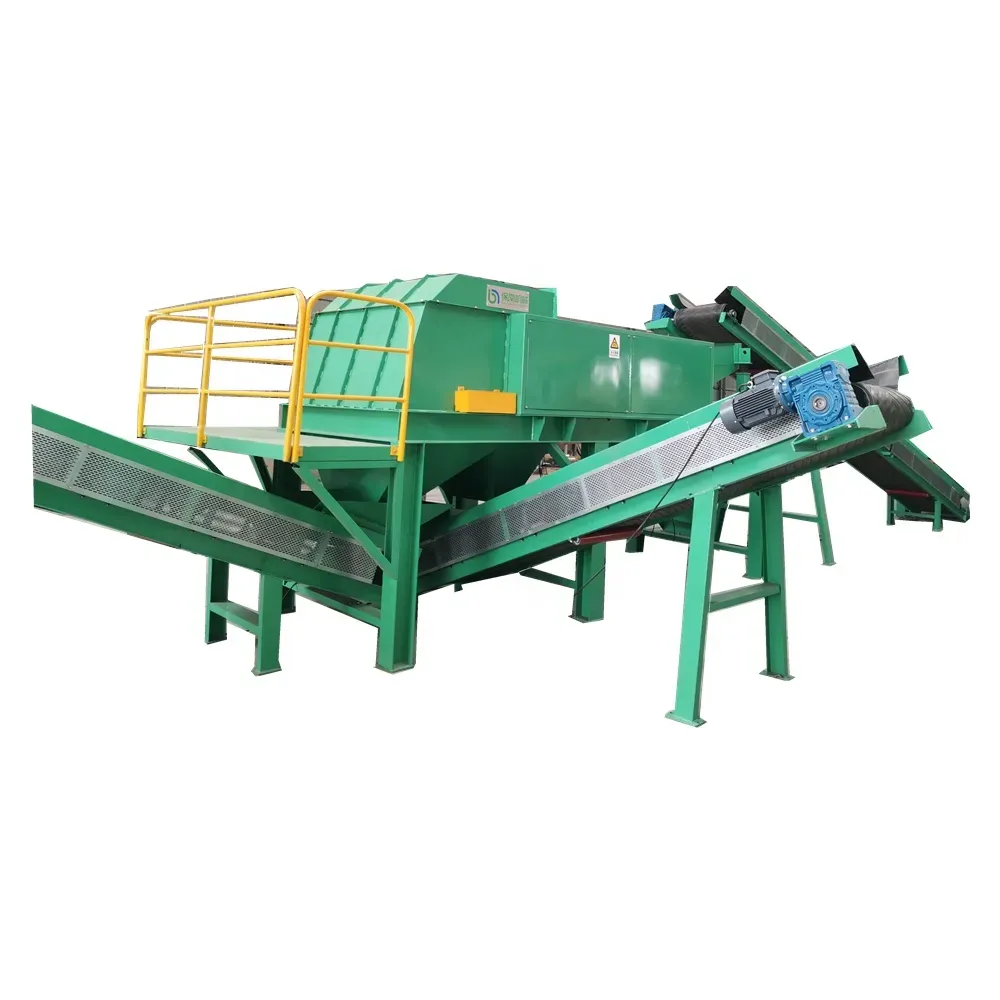

Ноя . 21, 2024 12:51 Back to list
The Impact of Metal Chippers on Recycling and Waste Management
In the rapidly evolving world of waste management and recycling, metal chippers play a crucial role in increasing efficiency and reducing environmental impact. These machines are designed to break down large pieces of scrap metal into smaller, manageable sizes, enabling easier transportation, processing, and recycling. The significance of metal chippers cannot be overstated as they contribute to sustainable practices and resource conservation in numerous ways.
Definition and Functionality
Metal chippers are heavy-duty machines that use mechanical force to shred and chip metallic materials. They are typically equipped with powerful blades or hammers that rotate at high speeds, allowing them to effectively cut through various types of metals, including aluminum, steel, and copper. The resulting metal chips can vary in size, depending on the machine settings, but are usually small enough to facilitate further processing and recycling.
Often used in metal recycling facilities, auto wrecking yards, and industrial operations, metal chippers have become essential tools for reducing the volume of scrap metal. By processing metal waste on-site, these machines help minimize transportation costs and make it easier for recycling centers to handle large quantities of material.
Environmental Benefits
One of the primary advantages of using metal chippers is their positive impact on the environment. Metal recycling is a vital component of waste management strategies, as it reduces the need for raw material extraction, decreases energy consumption, and cuts greenhouse gas emissions. When metals are recycled, they require significantly less energy to process compared to mining and refining virgin materials.
By using metal chippers to break down scrap metal, recycling facilities can improve the efficiency of their operations. Smaller metal chips take up less space, allowing for higher volumes of material to be transported without increasing the carbon footprint. Additionally, small metal pieces are easier to sort and separate, improving the overall quality of the recycled product.
Economic Implications

The economic benefits of metal chippers extend beyond environmental considerations. Efficient recycling operations can lead to significant cost savings for businesses. By processing scrap metal effectively, companies can reduce their waste disposal costs and generate revenue from recycled materials.
Furthermore, the demand for recycled metals continues to rise, as manufacturers increasingly seek sustainable sourcing options. By investing in metal chippers, recycling facilities can position themselves to meet this growing demand, creating a competitive advantage in the market.
Technological Advancements
Advancements in technology have led to the development of more efficient and versatile metal chippers. Modern machines are equipped with features such as programmable controls, enhanced safety features, and energy-efficient motors. This technological evolution allows operators to customize the chipping process according to the specific types of metal being processed and the desired output size.
Moreover, some metal chippers now integrate automation and data analytics, enabling real-time monitoring of performance and productivity. This not only enhances operational efficiency but also helps identify potential maintenance issues before they become problematic, further minimizing downtime.
Conclusion
In a world increasingly focused on sustainability and resource conservation, metal chippers represent an essential component of modern recycling and waste management practices. Their ability to efficiently process scrap metal not only helps reduce waste but also contributes to energy savings and lower greenhouse gas emissions. As technology continues to evolve, metal chippers will become even more effective and integral to the recycling industry.
Thus, investing in high-quality metal chippers is not just a business decision but also a commitment to environmental stewardship. As we continue to address the challenges of waste management and resource depletion, the role of metal chippers in facilitating sustainable practices will undoubtedly become more significant in the years to come. Through their functionality and efficiency, these machines pave the way towards a greener and more sustainable future for our planet.
Latest news
Troubleshooting Common Eddy Separator Problems
NewsJul.04,2025
The Role of Metal Recycling Plants in Circular Economy
NewsJul.04,2025
The Impact of Recycling Line Pickers on Waste Management Costs
NewsJul.04,2025
Safety Features Every Metal Shredder Should Have
NewsJul.04,2025
How Industrial Shredders Improve Waste Management Systems
NewsJul.04,2025
How Cable Granulators Contribute to Sustainable Recycling
NewsJul.04,2025